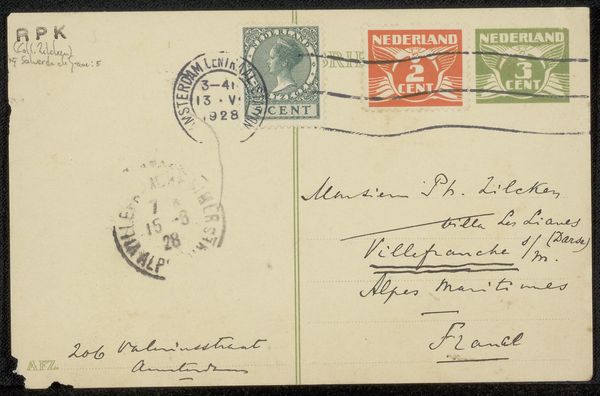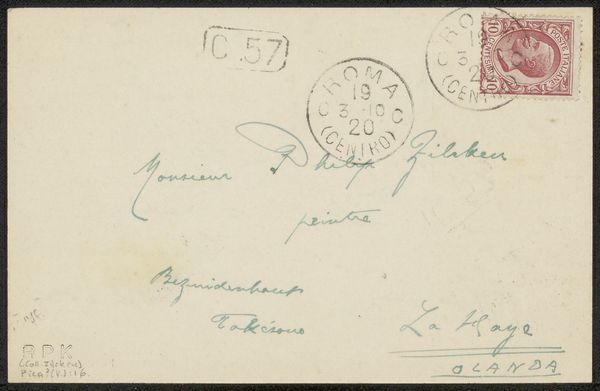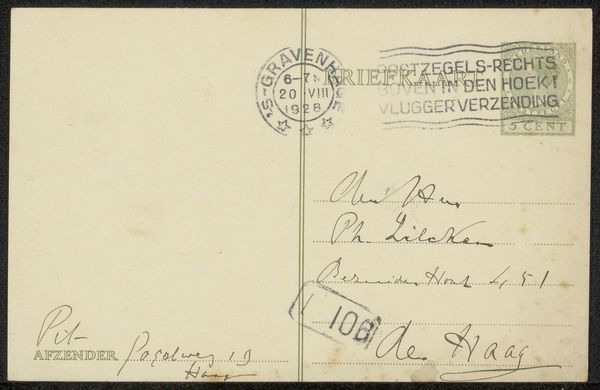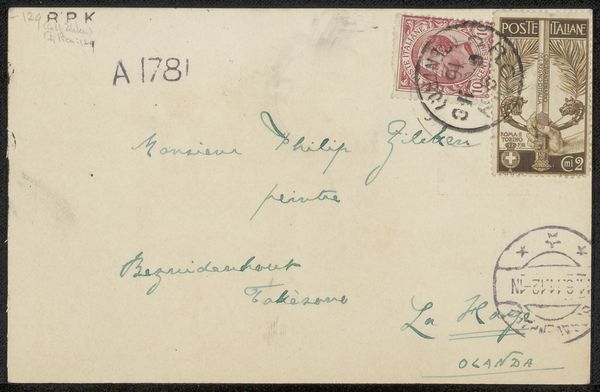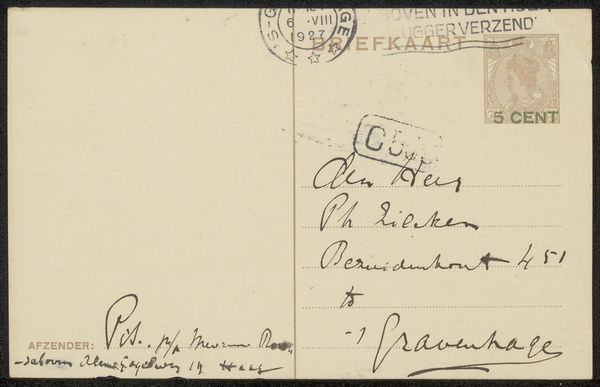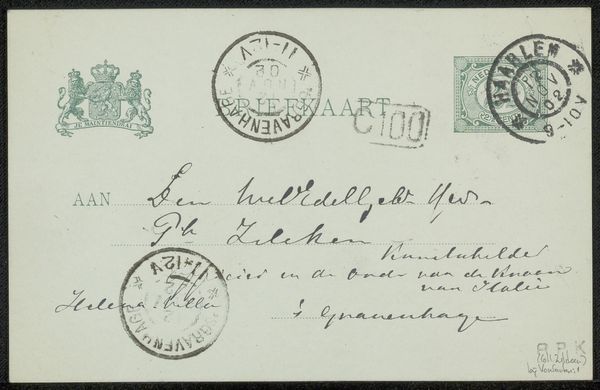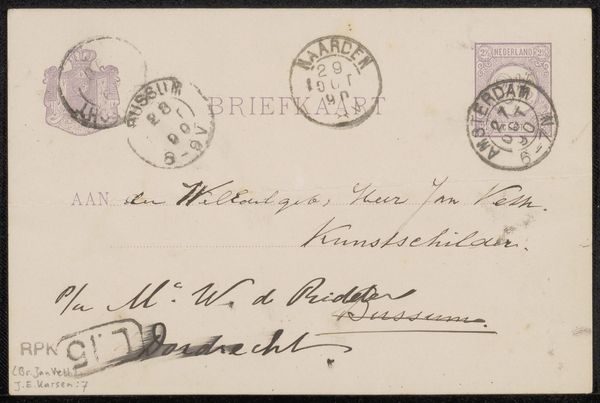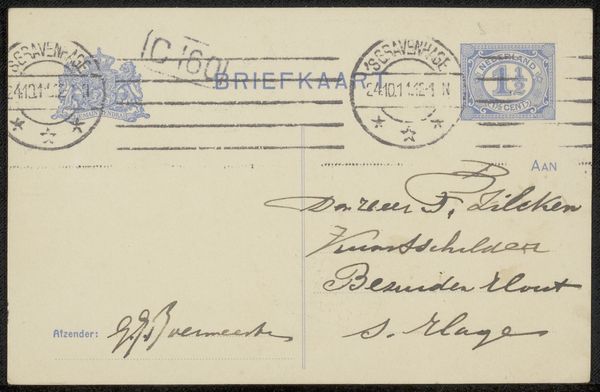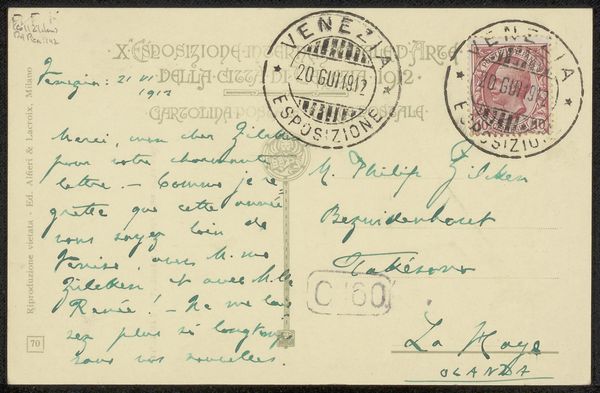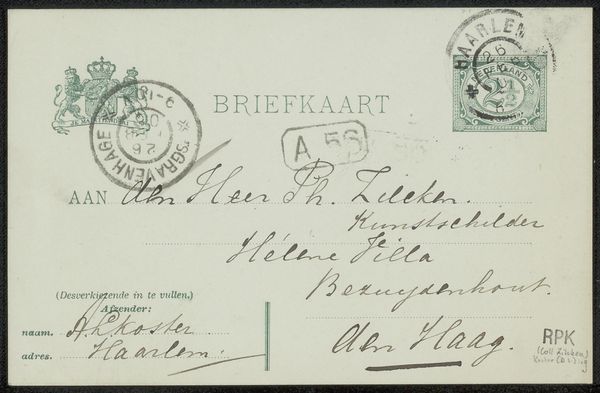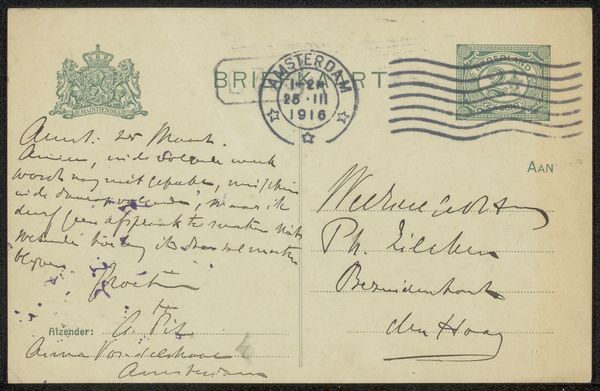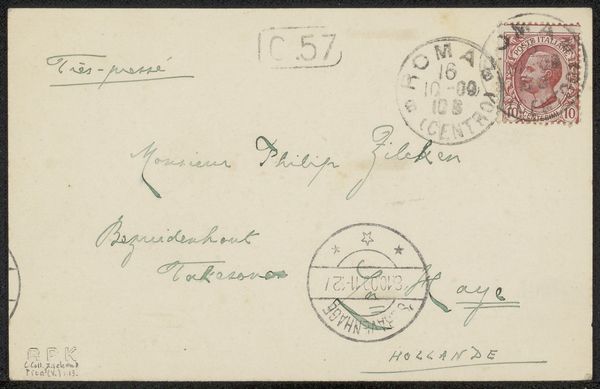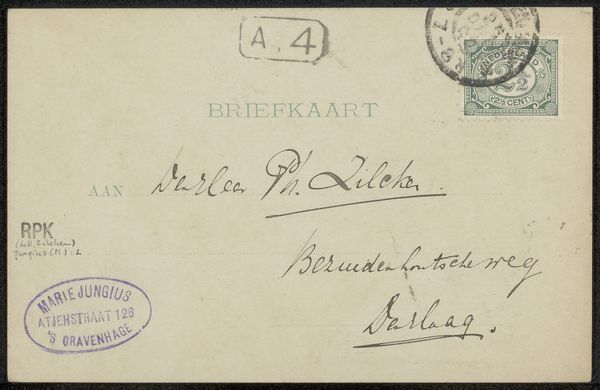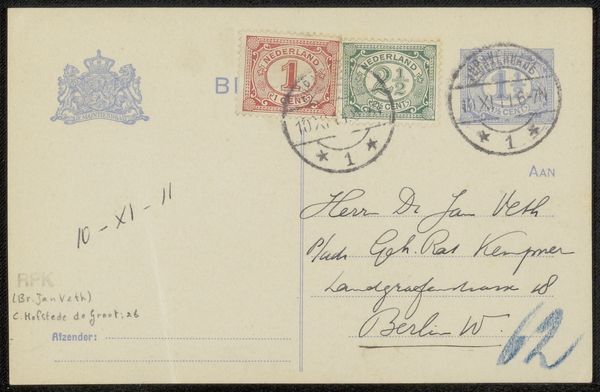
drawing, mixed-media, paper, ink
#
drawing
#
comic strip sketch
#
mixed-media
#
pen sketch
#
hand drawn type
#
paper
#
personal sketchbook
#
ink
#
ink drawing experimentation
#
pen-ink sketch
#
pen work
#
sketchbook drawing
#
storyboard and sketchbook work
#
sketchbook art
Copyright: Rijks Museum: Open Domain
Editor: Here we have "Briefkaart aan Philip Zilcken," potentially from 1928, housed at the Rijksmuseum. It seems to be a mixed-media piece – ink and possibly other materials on paper. It has an informal feel, like a personal note. What strikes you when you look at this? Curator: What interests me most is the materiality of the postcard itself. Consider the paper's manufacture, likely mass-produced. How does the standardization of this form impact the act of communication, especially in comparison to handmade paper or unique artistic supports? Editor: That's interesting, I hadn't thought about that. How the mass production changes its value and its intention? Curator: Precisely. Think about the labour involved: from the harvesting of raw materials for the paper to the printing of the postal markings. Each stage contributes to its meaning. The stamps themselves, beyond their monetary value, are also products of specific printing techniques and reflect governmental authority. And the act of handwriting transforms the object further… What is the context of that act, of someone creating meaning by writing on something as everyday and practical as this? Editor: So you’re seeing it as not just a simple message but an object loaded with layers of production and intention? Curator: Absolutely. The ink, the pen, the paper, the stamps, the postal system - all these components were made through collective and material actions and choices that reveal their social background, changing even what a personal postcard means in the grander scheme. How does considering these processes shift your understanding of the 'personal note' you described earlier? Editor: I guess I see it more now as a collision of personal expression and larger systems of production and exchange. Thanks for pointing that out, that is a lot more than I initially expected.
Comments
No comments
Be the first to comment and join the conversation on the ultimate creative platform.
